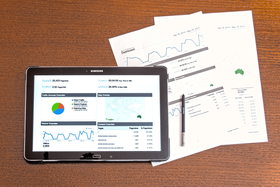How does TAX in the US work for day traders?
Asked 4 years ago
What is the law regarding day trading tax?
Andia Rispah Igobwa
Monday, November 15, 2021
Trading is not tax-free in the United States, with most companies forced to pay taxes on their profits. Furthermore, day trading does not qualify for special tax treatment when compared with long-term buy-and-hold investing.
In very uncommon situations, the IRS allows individuals to apply for informal day trader tax treatment, which might reduce tax effects while also making any net gains subject to self-employment taxes.
For regular investors who don't qualify for any tax advantages, the following rules may apply:
- You must pay taxes on investment profits when you sell them.
- You can offset capital losses against capital gains, but the gains you offset can't exceed your losses. You may utilize up to $3,000 in non-capital losses each year against your regular income such as wages, interest, or self-employment revenue on your tax return and carry any remaining non-capital loss forward to the following year.
- Gains from investments held for a year or less are subject to ordinary income taxes.
- Traders may capitalize on lower long-term capital gains taxes if they hold an investment for more than a year.
- Investors must pay taxes in the year they receive dividends and capital gains distributions.
- Long-term investors may avoid or postpone these taxes by keeping their assets in a tax-advantaged account, such as a 401(k) or Roth IRA.
Please follow our Community Guidelines
Related Articles

How to Develop a Stock Market Trading Strategy
Sofia Thai
April 23, 2021

All You Need to Know About the Over 25k Day-Trading Rule
Filip Dimkovski
December 23, 2024

Avatrade Review: Safety, MT4, Crypto, Social Trading, and More
Andrew Moran
December 23, 2024
Related Posts
Filip Dimkovski
Top 6 Forex Brokers for Day Trading
Taj Schlebusch
How to Find Stocks That Are Moving for the Day?
Filip Dimkovski
Best Forex Day Trading Strategies for Beginners
Andia Rispah Igobwa
What Counts as a Day Trade With Robinhood?
Filip Dimkovski
Using Platforms and Brokers for Day Trading
Can't find what you're looking for?
